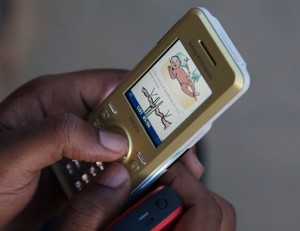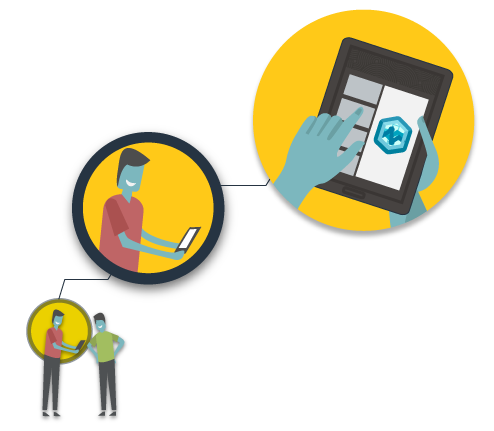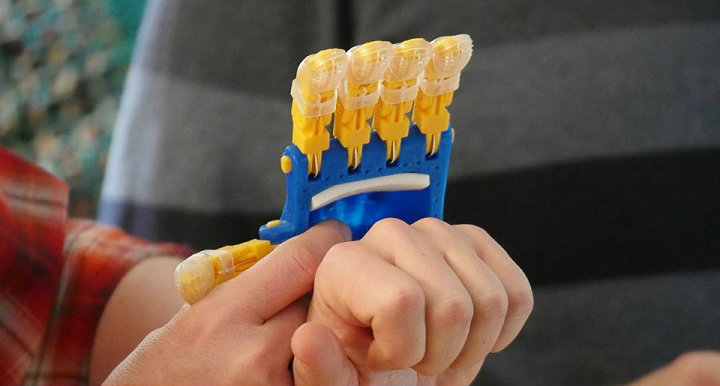Until recently, most health clinics in Uganda, and indeed across the continent of Africa, transmitted all of their data manually, sometimes by phone, but in most cases by sending messengers overland to each clinic — big, small, urban and rural — to collect paper records for analysis. This process is critical to verifying that medications are stocked on site and can be distributed in a timely fashion to patients most in need. It is also imperative in ensuring that Uganda’s health policy decisions are made based on the most up to date and accurate information.
But the journey of a paper record from doctor’s pad to the Ministry of Health in Kampala was treacherous at best. From extreme distances to challenging terrain and unpredictable transportation – collecting data the old fashioned way proved to be a time consuming, inefficient and expensive endeavor. This scenario caused health providers to learn about supply shortages only after it had become a relative emergency, hindering efforts to effectively respond to diseases prevalent in the region, such as malaria, HIV, and TB, among others.
One Healthcare implementer facing such data collection problems was the consulting group Cardno, and their Uganda Health Initiatives for the Private Sector (HIPS) project – a program funded by USAID, and administered through partnerships with over 100 private sector health clinics across the country. According to HIPS’ director of partnerships Barbara Addy-Witte, “[data collection] was a very cumbersome process for us. HIPS tracks data from 112 clinics and this often necessitated partner staff to travel to the project office in Kampala to deliver the data forms each quarter.
Working closely with USAID, HIPS faced the challenge of collecting upwards of 90 data points from each health clinic every quarter. With manual data collection and paper management, the HIPS program found these processes to lead to low collection numbers. And as any good project manager knows, low data collection numbers and compromised records can lead to the lack of ability to maintain the most efficient and effective operations. However, a recent partnership with the Denver based mobile technology group access.mobile has the potential to change the operational capacity of health providers in the region, with one of the most basic modern communication devices at the center of operations – cell phones.
The access.mobile team, led by Founder Kaakpema Yelpaala (KP), an American social entrepreneur of Ghanaian descent, has designed a mobile data collection and analytics system based on an SMS platform to electronically track priority health indicators, monitor stock levels of antiretroviral drugs and support organizations in understanding their data. This m-Health initiative, which uses full keyboard feature phones to send and receive information, has been rapidly scaled up for piloting in 70 health clinics in just three months. It was determined by HIPS that just over 30 of their clinics, mainly urban sites, had sufficient connectivity to send their reports electronically, though the overwhelming majority were not in that position.
But not only is access.mobile working to develop scalable technologies for improved communications in the region, the model of development is one based on local ownership and long-term sustainability. According to KP, “Uganda particularly is a place with a ton of talent in the technology sector. All of our employees in Uganda are from Uganda. They’re trained in mobile technology, computer science, and medicine. They’re the linchpin to our company’s success because they understand the context. They understand how Ugandans think about technology. It’s when you blend a local team like that with a global team like ours – that’s when you get innovation.”
Dr. Dithan Kiragga, the Chief of Party of the HIPS initiative: “The commodity supply chain in particular for ARVs has been a challenge. This partnership presents an opportunity to improve the commodity flow, to develop an alert system that triggers a request when the stocks are low. This ensures that there are no stock outs for priority drugs.”
With Cardno’s Uganda HIPS working towards the end of the fully-scaled pilot phase of the access.mobile solution, results of the financial and social impact of their work will be generated in the coming months and a better picture of their work will emerge. Furthermore, as the Ministry of Health in Uganda sets standards for data integration at the national level, solutions like access.mobile’s will also be an important element in helping engage the private sector with national health information management efforts.
As it stands however, the nascent m-Health industry has made significant headway toward strengthening supply chains, better depicting public health scenarios on the ground, informing good policy, and ultimately helping to improve the health of millions of Ugandans.
Post authors Kevin Malone and Greg Maly are working with TechChange for the online course: Global Innovations for Digital Organizing. They are happy to continue the discussion @TechChange.




